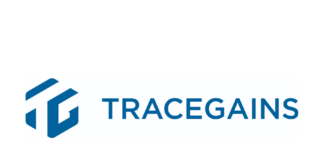
The benefits of a diverse workforce include better financial performance and, in particular, higher innovation revenue. In the low-margin food industry, improving either of these even a small amount can make a huge difference to a company’s profitability.
While true diversity encompasses several factors (gender, race, age, etc.), LinkedIn’s 2018 Global Recruiting Trends survey found that most companies — 71% — focus their diversity efforts on gender.
Effectively recruiting women for your workforce requires a plan that touches every step of the process, from revamping job descriptions to developing family-friendly HR policies. Here’s what Sarah O’Brien, LinkedIn’s Head of Global Insights, recommends based on the company’s extensive research (the following is summarized from O’Brien’s Harvard Business Review article, which is worth a read in its entirety):
- Get women in the pipeline early. While women are more likely to be hired once they apply, they apply for jobs at a lower rate. One reason is that women often don’t apply for jobs unless they meet all of the criteria, in contrast to men, who apply as long as they meet 60% of the criteria. O’Brien suggests companies change their recruitment model to account for this difference.
- Make job postings more inclusive. The words you use in your job descriptions matter. LinkedIn’s research has found that the words like “aggressive” are off-putting to women. She notes that the app Textio Hire can help you write more inclusive job descriptions.
- Share stories of women who are succeeding across all levels of your organization. Women are more likely to apply for jobs when they see themselves represented on the recruiting material.
- Post salary ranges for positions. This is important to both genders, but it’s 10% more important to women. Women also look for jobs that offer flexible work, working from home, and additional medical benefits.
So, how are food companies doing?
According to Forbes’ America’s Best Employers for Women for 2020, some are doing pretty well. Both Unilever and Coca-Cola making the top 5, while Kellogg, JM Smucker, General Mills, Mars, Campbell Soup, and Hershey’s were all in the top 200.
This is not the first time Unilever has been recognized for promoting diversity. Last year, the company was one of just 15 to be named a Leading Inclusion Index Company by Diversity Best Practices. The company focuses on women’s empowerment and disability and LGBT+ inclusion as well as “challenging harmful social norms and stereotypes in our workplaces and beyond.”
Learn more about Unilever’s approach to diversity and inclusion:
- Unilever Shares 5 Ways Diversity Is Good For Business
- Nine Ways We’re Making Unilever a More Gender-Balanced Business
For its part, Coca-Cola has a stated Global Diversity Mission and a dedicated Diversity and Inclusion Office. The company considerably upped its diversity commitment after it paid nearly $200 million to settle a racial bias lawsuit in 2000.
Learn more about Coca-Cola’s approach to Diversity and Inclusion:
- Coca-Cola CFO John Murphy on How Male Employees Can Support the Company’s Gender Equality Agenda
- How Coca-Cola Built Strength on Diversity ($4.50 – short book from Harvard Business Review)





